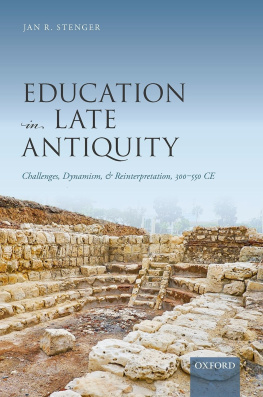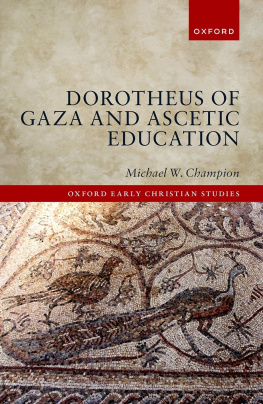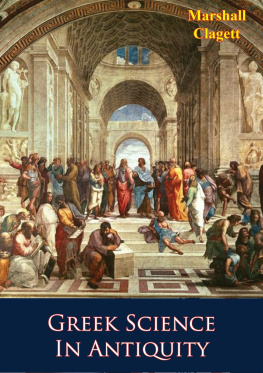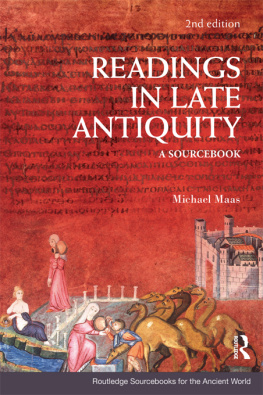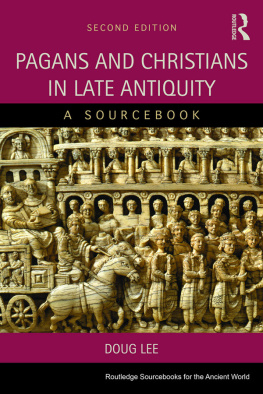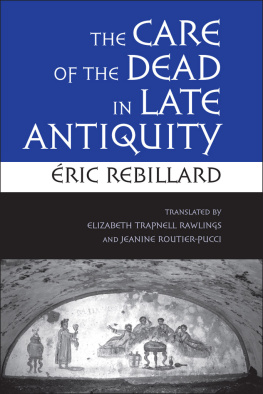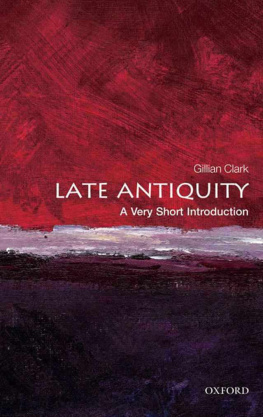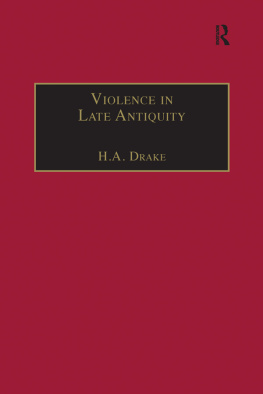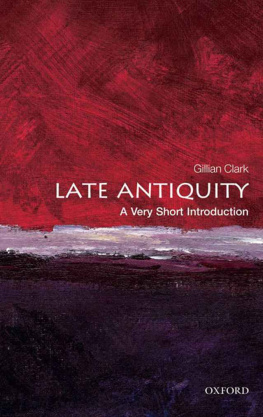
Great Clarendon Street, Oxford, OX2 6DP, United Kingdom
Oxford University Press is a department of the University of Oxford. It furthers the Universitys objective of excellence in research, scholarship, and education by publishing worldwide. Oxford is a registered trade mark of Oxford University Press in the UK and in certain other countries
Jan R. Stenger 2022
The moral rights of the author have been asserted
First Edition published in 2022
Impression: 1
All rights reserved. No part of this publication may be reproduced, stored in a retrieval system, or transmitted, in any form or by any means, without the prior permission in writing of Oxford University Press, or as expressly permitted by law, by licence or under terms agreed with the appropriate reprographics rights organization. Enquiries concerning reproduction outside the scope of the above should be sent to the Rights Department, Oxford University Press, at the address above
You must not circulate this work in any other form and you must impose this same condition on any acquirer
Published in the United States of America by Oxford University Press
198 Madison Avenue, New York, NY 10016, United States of America
British Library Cataloguing in Publication Data
Data available
Library of Congress Control Number: 2021940862
ISBN9780198869788
ebook ISBN9780192642530
DOI: 10.1093/oso/9780198869788.001.0001
Printed and bound in the UK by TJ Books Limited
Links to third party websites are provided by Oxford in good faith and for information only. Oxford disclaims any responsibility for the materials contained in any third party website referenced in this work.
Acknowledgements
This book would not have seen the light of the day without the generous financial support of the Leverhulme Trust. It is, therefore, my heartfelt desire to extend my thanks to the members of the Trust Board for awarding me a Major Research Fellowship for the period 201619. I doubt it would have been possible to embark on this project without this sustained period of full-time focus. Julia Smith (Oxford), Henriette van der Blom (Birmingham), and Matthew Fox (Glasgow) were the first readers of my initial thoughts on this project and helped me with their perceptive comments to turn them into a worthwhile application. For this I owe them a great debt. I also benefitted from the support of Susanna Elm (Berkeley), Andrew Louth (Durham), and Mark Vessey (Vancouver).
A Senior Fellowship at the Cluster of Excellence TOPOI, Berlin, in summer 2017 and a fellowship at the Swedish Collegium for Advanced Study in the academic year 201718 allowed me to make significant progress on the project. I would like to express my gratitude to these institutions and especially to the former director of the Swedish Collegium, Bjrn Wittrock, for creating such an inspiring environment. I very much enjoyed the freien Umgang vernnftiger sich untereinander bildender Menschen (Friedrich Schleiermacher) at the Collegium, in particular the conversations with Rebecca Earle (Warwick) about religious education. The exchange with my co-fellows broadened my intellectual horizon and, thus, provided a truly formative experience.
Portions of this book were publicly presented at events in Berlin, Gttingen, Uppsala, Leicester, and Rome. I remain grateful to the thoughtful audiences for taking part in the discussions and providing valuable feedback on my thoughts. The staff of the university libraries at Glasgow, Berlin, Uppsala, and Wrzburg, of the National Library of Scotland at Edinburgh, of the Institute of Classical Studies in London, and the Bayerische Staatsbibliothek in Munich were always helpful. In the final stage, the help of my former doctoral student James McDonald (Glasgow) was invaluable. He carefully read the entire draft of the manuscript and improved my English. His work has saved me from many mistakes, for which I am immensely grateful. At Wrzburg, Johannes Kern with his diligence spotted many inconsistencies and inaccuracies in the manuscript. Finally, I would like to thank the anonymous readers of the Press for their helpful suggestions and the editorial staff at Oxford University Press for their assistance and flexibility.
Contents
Corpus Christianorum, Series Graeca
Corpus Christianorum, Series Latina
Corpus Scriptorum Ecclesiasticorum Latinorum
Die Griechischen Christlichen Schriftsteller
Gregorii Nysseni Opera
Migne, Patrologia Graeca
Migne, Patrologia Latina
The Prosopography of the Later Roman Empire
Sources Chrtiennes
References to Greek authors follow the abbreviations of Liddell-Scott-Jones and, for Christian authors, those of Lampe 1961. References to Latin authors follow the practice of the Thesaurus Linguae Latinae.
Education can be a divisive issue. When the Gothic court at Ravenna in 526 ce debated the upbringing of King Athalaric, a serious conflict erupted. Athalaric was the grandson and successor of Theoderic the Great but, as a minor, still under the guardianship of his mother Amalasuintha. On one side of the divide was the boys mother, herself of sharp mind and well educated. If everything had gone according to her plans, Athalaric would have received a thorough training by mature experts in Latin grammar and letters, so as to adopt the lifestyle becoming for Roman nobles. On the other, a clique of powerful Goths mounted resistance. Letters, they asserted, are widely separated from manliness, and the teachings of old men for the most part results in a cowardly and submissive mind. Alleging that already Theoderic had evinced dislike for literate education in favour of training in arms, they forced Amalasuintha to abandon the aspirations for her son and replace the three elderly tutors with the company of boys who were to share Athalarics life. From then on, the child kings fate was sealed, as the Greek historian Procopius informs us. These lads, only a little older than Theoderics grandson, soon enticed him into drunkenness and debauchery, until any advice of his mother fell on deaf ears.
This episode from the introduction to Procopius Gothic War, undergirded by stark binariesfemale/male, Roman/barbarian, effeminacy/manliness, and intellect/practical virtueallows us a fascinating glimpse into the debate on education and formation in late antiquity. Embellished by the historians imagination, the dramatic clash at the royal court not only condenses the political and cultural tensions arising from Ostrogothic rule over Italy but also pushes into the limelight questions around which late antique thinking about paideia and personal development was revolving. It contrasts two education systems, the centuries-old tradition of Graeco-Roman schooling in letters and rhetoric, and a barbarian model of socialization in a peer group, with a strong preference for the cultivation of strength and will. As the contents, methods, aims, and outcomes of late Roman education are called into question by barbarians, Procopius cultured readers are encouraged to cast a glance from a different, external angle at their cherished pedagogic principles and traditions, even if, in the end, the superior value of those venerated traditions is reaffirmed by Athalarics steep lapse into degeneration. Education, the account suggests, was a catalyst for negotiating key issues of culture and society, such as gender, ethnicity, the relationship between theory and practice, and the foundations of leadership, particularly in a time of profound transformation. Procopius eavesdropping on the argument in the inner circles of Gothic power draws our attention to the wider implications of training and formation: the personality produced by different processes of upbringing; the morality underpinning pedagogic ideals; the hidden curriculum tacitly at work in any education; and the role of socialization in guiding human beings from childhood to adult age. In this respect, the controversy, stylized though it is, is emblematic of preoccupations of the late Roman elites.

